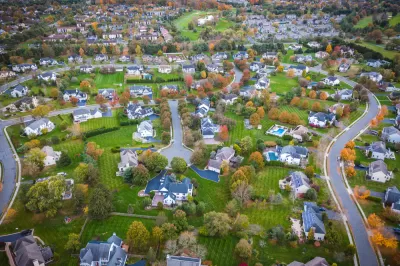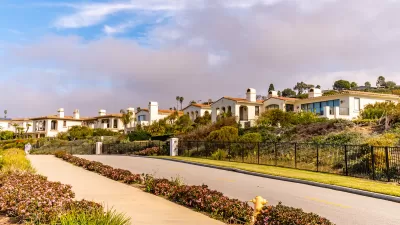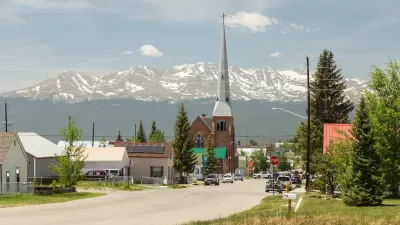Plaintiffs claim the new state law strips local control of growth, but affordable housing advocates say the lawsuit is just a delay tactic.

Eight New Jersey mayors filed a lawsuit earlier this month against a recently enacted state housing law, S50/A4, which standardized requirements for municipalities to build more housing. According to an article by Brianna Kudisch for NJ.com, the lawsuit claims the state law exceeds what is constitutionally required under state Supreme Court decisions that “outlawed exclusionary zoning practices and required all towns in New Jersey to provide their fair share of the region’s affordable housing” and questions the law’s exemption of 62 municipalities from having affordable housing obligations.
The article reports that an additional eight municipalities are expected to join the lawsuit later the month, but says affordable housing advocates are confident the suit has no legal standing and predict it will be thrown out of court. Adam Gordon, the executive director of the nonprofit Fair Share Housing Center, told NJ.com the lawsuit is a “smokescreen” meant to delay implementation of the law, put forth by “ultra-wealthy communities who have fought affordable housing for decades.”
The plaintiffs claim the law takes away their towns’ say in how they grow, but Gordon told NJ.com that the state law in question “gives towns tools — including new bonuses, financing options and credits — to build affordable housing in the way they want….Towns only lose their ability to be in control of the process when they refuse to find any place to create their fair share of affordable housing.”
According to the National Low Income Housing Coalition, New Jersey has a shortage of 214,000 units of affordable rental housing, and of the 25 percent of the state’s renter households that are extremely low income (making less than $33,290 annually), 74 percent are severely cost burdened.
FULL STORY: 9 N.J. towns sue the state over new affordable housing law

Planetizen Federal Action Tracker
A weekly monitor of how Trump’s orders and actions are impacting planners and planning in America.

Maui's Vacation Rental Debate Turns Ugly
Verbal attacks, misinformation campaigns and fistfights plague a high-stakes debate to convert thousands of vacation rentals into long-term housing.

Restaurant Patios Were a Pandemic Win — Why Were They so Hard to Keep?
Social distancing requirements and changes in travel patterns prompted cities to pilot new uses for street and sidewalk space. Then it got complicated.

In California Battle of Housing vs. Environment, Housing Just Won
A new state law significantly limits the power of CEQA, an environmental review law that served as a powerful tool for blocking new development.

Boulder Eliminates Parking Minimums Citywide
Officials estimate the cost of building a single underground parking space at up to $100,000.

Orange County, Florida Adopts Largest US “Sprawl Repair” Code
The ‘Orange Code’ seeks to rectify decades of sprawl-inducing, car-oriented development.
Urban Design for Planners 1: Software Tools
This six-course series explores essential urban design concepts using open source software and equips planners with the tools they need to participate fully in the urban design process.
Planning for Universal Design
Learn the tools for implementing Universal Design in planning regulations.
Heyer Gruel & Associates PA
JM Goldson LLC
Custer County Colorado
City of Camden Redevelopment Agency
City of Astoria
Transportation Research & Education Center (TREC) at Portland State University
Jefferson Parish Government
Camden Redevelopment Agency
City of Claremont





























